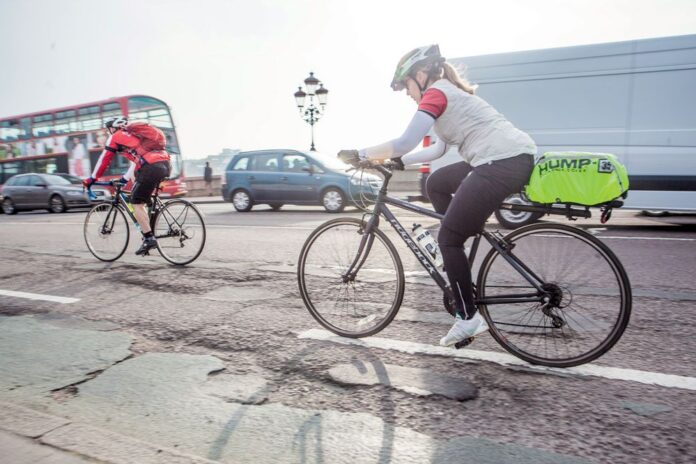Cycling is a sustainable form of transport, but that doesn’t automatically mean all cyclists have ‘done their bit’. We asked ultra-distance cyclist and sustainability expert Dr Ian Walker how bikes can best help the planet.
How can a cyclist make their riding more sustainable?
It’s great we’re discussing transportation’s environmental impact, where emissions are still rising. For cyclists, avoiding car ownership is a key step, as the embodied emissions from manufacturing a car are significant. An e-bike can often replace a second car, helping reduce our carbon footprint. In our household, we use one car and rely on an e-bike for much of our transportation, which has significantly lowered our environmental impact.
Electric cars are often hailed as the solution to environmental issues, but you disagree?
While electric cars reduce operational emissions, they don’t address the underlying issues with our car-dominated society. They still require substantial resources to produce, and they don’t tackle the problems of traffic, road safety, or the space cars take up in cities. In that sense, they’re a ‘motonormative non-solution’ – they let us keep living in an inefficient and harmful way without addressing the real issues.
What is ‘motonormativity’?
It’s the cultural assumption that driving is the default, normal way to travel, while alternatives like cycling and public transport are dismissed or neglected. This mindset is deeply embedded in our infrastructure, media, and even laws, making car use seem inevitable and unquestionable. We rely on cars, even though most car trips in Britain are short and could be replaced with active travel, benefitting public health as well as the environment.
The latest race content, interviews, features, reviews and expert buying guides, direct to your inbox!
Could you explain embodied versus operational emissions?
Embodied emissions are the carbon emissions produced during an item’s creation, like the energy used to manufacture a car or bike. Operational emissions occur during use, such as emissions from driving. Comparing environmental impacts can be misleading if only operational emissions are counted, ignoring high embodied emissions – we need to consider both.
(Image credit: Future)
How big a role can cycling play in reducing our collective environmental impact?
Replacing short car trips with cycling is space efficient, healthier, and fosters sustainability. Cyclists also become more aware of their surroundings, which can inspire other eco-friendly choices. Building a culture of active, sustainable travel can create positive ripple effects, encouraging more environmentally conscious behaviours.
As an ultra-cyclist, are there personal habits you’ve adopted to minimise your impact on the planet?
One of the most impactful changes I’ve made to reduce my carbon footprint is cutting out meat, and I’m also working on reducing dairy. In cycling, I try to choose gear from brands using recycled materials, though the industry still has work to do, especially with end-of-life disposal for items like carbon bikes. It would be great to see more recycling options for components like chains and inner tubes, which often pile up. Every small step helps in moving toward a more sustainable lifestyle.
Might self-driving cars be the solution?
I’m sceptical about self-driving cars happening any time soon. But even if we had perfect self-driving cars that never crash and have no environmental impact, the problems wouldn’t disappear. If anything, they might get worse. More people would drive, urban sprawl would increase, and people would spend even more time isolated in their vehicles. As with electric vehicles, self-driving cars don’t solve the social and public health issues linked to over-reliance on cars. Someone once said: ‘Electric cars are the future of cars, but cars aren’t the future of transport,’ and I think that sums it up well.
This article was originally published in Cycling Weekly magazine. Subscribe now and never miss an issue.


